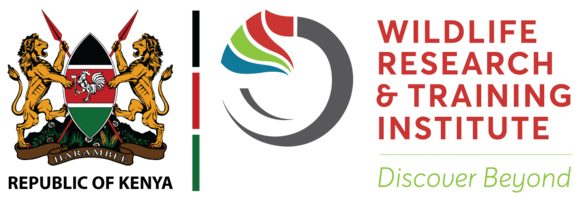WILDLIFE RESEARCH AND TRAINING INSTITUTE PERMITTING SYSTEM
Welcome to the one stop portal for Research Permits in The WRTI. Please use the Applicant Checklist to ensure that you have all the documents you will need before you apply.
Fees
Individual (Non-Kenyan researchers)
| # | Nature of Fee | Fee |
| 1 |
Doctorate/Post Doctorate Research |
USD 700 |
| 2 |
Masters Research |
USD 500 |
| 3 |
Undergraduate Research |
USD 250 |
| 4 |
Affiliation |
USD 120 |
Individual (Kenyan Students/researchers)
| # | Nature of Fee | Fee |
| 1 |
Doctorate Research |
KSh. 12,000 |
| 2 |
Masters Research |
KSh. 6,000 |
| 3 |
Diploma/Undergraduate /attachment |
KSh. 1,200 |
Prior Informed Consent (PIC)
Access to wildlife resources and research is subject to written PIC from the concerned right holders.
In order to obtain PIC, the user is required to provide a full explanation as prescribed of how the wildlife resources or research is to be acquired and used.
To obtain PIC from the concerned right holders a person or institution must;
- Comply with community protocols or customary practices, where such protocols or practices exist; and
- Comply with the advice given by WRTI.
PIC granted under these regulations does not entitle the applicant to access wildlife resources or research but only enables the applicant to proceed with the application for a wildlife research permit.
The Prior Informed Consent signed by both parties MUST be uploaded with other supporting documents in your application as advised by the WRTI permits office.
Mutually Agreed Terms (MAT)
If prior informed consent is granted in accordance, the right holders and the applicant must enter into an access and benefit sharing agreement known as Mutually Agreed Terms (MAT).
MAT must be negotiated and entered into between the applicant and the right holders or their duly authorised representatives (WRTI), and may be negotiated under the guidance of the WRTI permits office and recorded in writing on the MAT guidelines template;
In addition to the type of benefits, MAT may vary on a case by case basis, and may include -
- Socio-economic development of the local community or right holders;
- Collaboration and sharing of information with academia and research institutions;
- Participation of right holders, academia and research in the project of wildlife resources or and
- Joint ownership of relevant forms of intellectual property rights.
During compliance monitoring the WRTI permits office will ascertain if all benefits contained in the MAT have accrued or been paid to the right holders.



